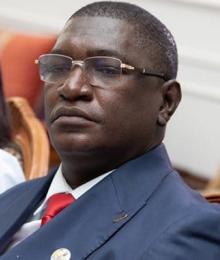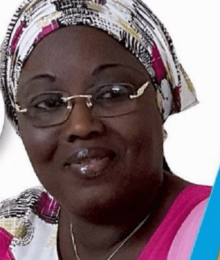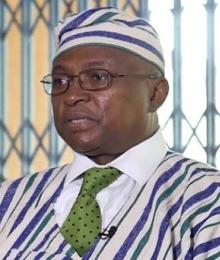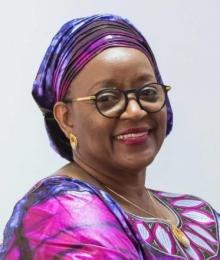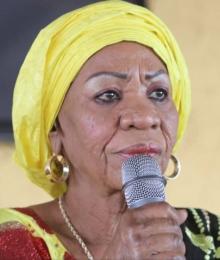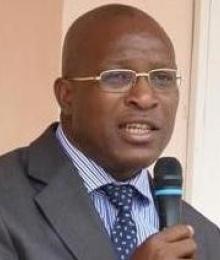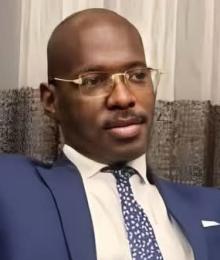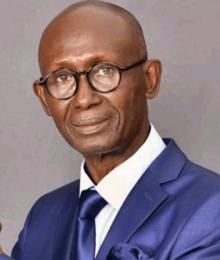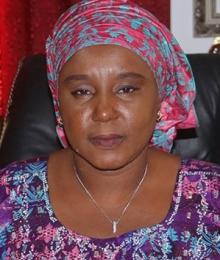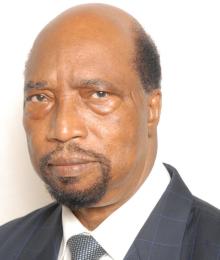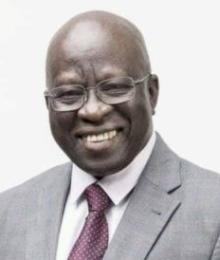
Sékou Koureissy Condé is a Guinean politician born in 1954 in Kouroussa. He has held several key positions in his country, notably serving as Minister of Security (1997-2000) and the first Mediator of the Republic. A graduate in criminology and political sociology, he founded the ARENA party and has been particularly committed to national reconciliation and conflict resolution in Africa. After a period of exile in the United States, where he taught at New York University and Columbia University, he co-founded the African Crisis Group in 2011, a consultancy specializing in conflict prevention and resolution. More recently, in February 2025, he launched the Forum for Citizen Dialogue, demonstrating his strong belief that dialogue is essential for resolving African crises.
Introduction
Guinean politician with multiple facets, Sékou Koureissy Condé has navigated through different eras and challenges of his country with a constant vision: that of reconciliation and national unity. Born in 1954 in Kouroussa in the Republic of Guinea, he has become an essential figure in mediation and conflict resolution in Africa.
Family
Born into a family deeply rooted in traditional African values, Sékou Koureissy Condé received a rich moral and spiritual education from a very young age. His father, Teninken-Fodé Condé, was a respected Sufi spiritual leader. Following his father's death when Sékou was only five years old, his paternal uncle, a village Elder, took him under his wing.
While his mother was the one who influenced him most with her words of wisdom, his family was also politically engaged. The paternal branch supported the African Bloc of Guinea, which favored a gradual transition to independence, while his maternal family campaigned alongside the Democratic Party of Guinea and the African Democratic Rally. His maternal uncle, Selian Sekou Kouyate, was among the founders of this party.
Academic Journey
After schooling where he developed a passion for history, geography, literature, and philosophy, Sékou Koureissy Condé entered the University of Kankan in 1976 to study history and sociology, then continued at Gamal Abdel Nasser University in Conakry. Heavily involved in student life, he was elected Vice-President of the university students.
A defining event marked this period: in 1977, faced with the distribution of leaflets calling for revolt against President Sékou Touré's regime, he took the initiative, as the primary student representative, to inform the university authorities. This approach led him to meet President Sékou Touré in person, paving the way for a collaboration that would lead him to accompany the President on international trips.
International Education
His academic journey took an international dimension in 1980 when he received a scholarship to study in Eastern Europe. He first joined the law faculty at Charles University in Prague, where he earned a doctorate in criminology in 1985. In 1987, he continued his education in Freiburg, Germany, as a scientific researcher at the Max Planck Institute, specializing in international criminal law. Simultaneously, he obtained a doctorate in political sociology from the University of Freiburg in 1992.
Political Engagement
His political career began in Germany in 1990. After working on a project concerning relations between the West and Africa at the Max Planck Institute, he became a parliamentary assistant for the coalition of the Christian Democratic Union of Germany and the Christian Social Union in Bavaria, within the Foreign Affairs Committee of the regional Parliament of North Rhine-Westphalia.
In 1992, as Guinea opened up to multi-party politics, Sékou Koureissy Condé returned home to found his political party, the Alliance for National Renewal (ARENA). Recognizing the ethnic divisions in his country, he directed his political action toward reconciliation and national unity.
National Assembly
His national political career accelerated in 1995 when he entered the National Assembly as spokesperson for the PDG-RDA, with which his party had allied. He successively became Advisor to Buro Diallo, President of the Assembly, and Head of the International Cooperation Division.
In 1997, President Lansana Conté appointed him Minister of Security, a position he held until 2000. This period was marked by regional instability, with civil wars in Liberia and Sierra Leone, countries bordering Guinea. At the head of the Ministry, Sékou Koureissy Condé promoted deterrence rather than repression to ensure the country's security.
The Alpha Condé Affair
His career took a turn in 1998 with the "Alpha Condé affair." On the eve of the presidential election results, candidate Alpha Condé was arrested at the border with Côte d'Ivoire by Guinean soldiers, suspected of fomenting a coup. Alpha Condé then accused Sékou Koureissy Condé, as Minister of Security, of ordering his arrest.
Although he denied these accusations during the trial in 2000, this affair, combined with the maneuvers of President Lansana Conté's entourage, whose interests were threatened by his fight against corruption, led to his downfall. In 2000, he was dismissed from his duties and, fearing for his life, first exiled himself to Europe and then to the United States in 2001.
American Exile
In the United States, Sékou Koureissy Condé managed to prove his innocence in the Alpha Condé affair and obtained asylum. He turned to teaching, specializing in the prevention and resolution of conflicts in Africa. He became an associate professor at New York University, then taught at the School of International Public Affairs at Columbia University.
In 2004, he was sent to the University of Cape Town to direct the studies of an international symposium on negotiation and conflict resolution, where he met Frederik de Klerk, the former South African President who ended apartheid.
Return to Guinea
After the death of President Lansana Conté on December 23, 2008, and the seizure of power by Captain Moussa Dadis Camara, Sékou Koureissy Condé was one of three personalities designated to ask the latter not to run in the 2010 presidential elections.
Following the massacre of September 28, 2009, at the Conakry stadium and the assassination attempt against Dadis Camara in December of the same year, Sékou Koureissy Condé was recalled to Guinea by General Sékouba Konaté, who was acting as interim head of the country. He was appointed Secretary General of the National Transitional Council, the body responsible for drafting a new Constitution and a new electoral code.
In October 2010, he became the First Mediator of the Republic, a position from which he was, however, dismissed as soon as Alpha Condé was elected in December 2010.
Founding of the African Crisis Group
Faced with this new eviction, Sékou Koureissy Condé decided to direct his commitment toward civil society. In April 2011, he co-founded the African Crisis Group in Ouagadougou, a consulting and strategic studies firm specializing in risk assessment and monitoring, prevention and resolution of conflicts, and support for good governance.
The fundamental mission of this structure is to contribute to peace consolidation in Africa. Its methodology is inspired by research conducted by Sékou Koureissy Condé during his American exile, seeking to establish complementarity between traditional and modern conflict resolution mechanisms.
From 2011 to 2018, the African Crisis Group intervened as a mediator in most crises and conflicts in Africa, notably in Guinea, Burkina Faso, Mali, Niger, the Democratic Republic of Congo, Togo, and Nigeria.
Vision and Thought
Sékou Koureissy Condé's thinking is inseparable from his commitment to peace and conflict resolution in Africa. In 2004, he founded the NGO American Council on Africa, specializing in research on conflict resolution on the continent, which he directed until 2010.
Since April 2014, he has also headed CANEG (Convention of Non-State Actors of Guinea), an organization of Guinean civil society that aims to create a synergy of initiatives and actions between West African civil society organizations in the field of peace, security, and development.
In his public interventions, Sékou Koureissy Condé defends the idea that conscious and conscientious populations are "stronger than 1,000 armies combined." He advocates a transnational and cross-border approach to crisis management, directly involving citizens.
He lucidly analyzes the challenges of African governance, particularly pointing to poor governance, inadequate treatment of political adversity, and the refusal of self-criticism as explanatory factors for recurring crises on the continent.
Regarding the coups d'état that regularly shake the West African region, he invites to "integrate the military phenomenon" into a fundamental political reflection, believing that without this analysis, "we will not escape the cycles of coups d'état."
Citizen Dialogue Forum
In February 2025, faithful to his vision of dialogue as a solution to crises, Sékou Koureissy Condé launched the Citizen Dialogue Forum in Conakry, with the support of organizations such as Frontières d'Afrique and l'Arbre à Palabre. This initiative aims to "reconnect the thread of dialogue and foster a climate of mutual understanding and internal stability" in Guinea.
There, he clearly distinguishes between citizen dialogue and political dialogue, emphasizing that the former "calls on Guineans to talk to each other and to know that it is by talking that we achieve mutual understanding, it is with listening that we have tolerance."
Intellectual Contribution
Sékou Koureissy Condé's career has been recognized notably by the French Republic, which awarded him the National Order of Merit on September 21, 1999.
He continues his political commitment in Guinea today, where he sits as a deputy on the national list, within the Republican Rally parliamentary group, representing his ARENA party. He holds the position of President of the Education Commission.
Publications
Sékou Koureissy Condé has also contributed to reflection on conflicts in Africa through several publications, notably:
- "Regional Dimension of Sociopolitical Crises in West Africa: Comparative Study"
- "Conflict Resolution in Africa: Formal and Informal Methods and Mechanisms for Conflict Resolution in Africa"
Conclusion
Through his academic career, political involvement, and commitment to peace, Sékou Koureissy Condé embodies an African figure resolutely turned toward reconciliation and dialogue. His vision of an Africa pacified by its own conflict resolution mechanisms resonates particularly in the current context of multiple crises on the continent.
His action at the head of the African Crisis Group and his initiatives such as the Citizen Dialogue Forum testify to a constant commitment to making speech prevail over force. As he himself emphasizes: "Without stability, there will be no development. And without development, there is no prosperity."
The trajectory of Sékou Koureissy Condé thus illustrates the challenges and hopes of an entire generation of African intellectuals and politicians working for a future of peace and prosperity for the continent.











